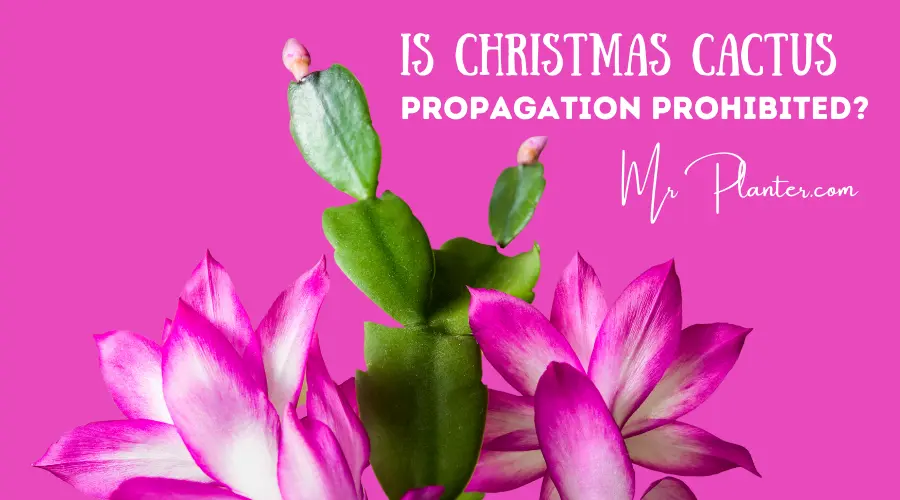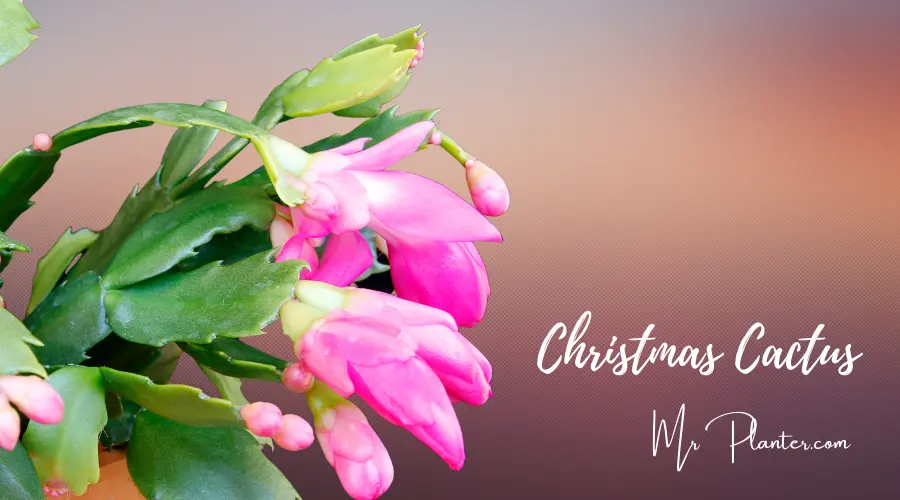Christmas cacti are generally propagated by grafting, a technique where one piece of vegetation is grafted onto another element to create a new plant. If you want to know if Christmas Cactus Propagation is Prohibited or not, then this is the right post!
This is different from seed propagation, where a plant is grown from a single part of its seeds. Christmas cacti are propagated through grafting to produce new plants rather than by source.
It is not legal to propagate Christmas cacti from cuttings or seedlings. However, there are other ways to propagate Christmas cacti. For example, you can buy young plants at a nursery or plant store. You can also take a cutting from an adult plant.
These Propagation methods are not as risky as propagating Christmas cacti from seed, and they may give you better results.

Let’s get started!
What does Propagation Prohibited mean?
Christmas cactus is a tropical plant, and it is unauthorized to ship or send these plants to many countries.
Generally speaking, most countries have laws against exporting or importing plants or plant parts that are not indigenous to the country.
These laws are there for a reason, and they are designed to protect native plants and prevent the introduction of invasive species.
Therefore, it is against the law to have Christmas cactus plants, seeds, or other parts not indigenous to your country.
Why does Christmas Cactus come with a Propagation Prohibited Label?
Propagation Prohibited indicates that it is not legal to propagate Christmas cactus. Along with other countries, the USDA has strict laws about importing plants and plant materials into the country.
While most of these laws are in place for a good reason, they present a challenge for plant lovers. The USDA has strict rules about importing plants and plant materials.
This means that even if you have a greenhouse in your backyard, you cannot legally plant a Christmas cactus.
Is it Illegal to propagate Christmas cactus?
Yes, it is against the law to propagate this plant. There are a few methods of Propagation that are not as risky as propagating Christmas cactus from seed, and they may give you better results. However, they are still illegal.
How to know if Propagation is allowed for your plant?
If you want to grow a Christmas cactus, the best way to determine if Propagation is allowed is to check the plant tags.
If a plant tag states that Propagation is prohibited, you must not take any steps to propagate the plant.

If you have purchased a plant tagged as “propagation prohibited,” you can still legally possess the plant.
However, you must remove the tag and wait at least one year before trying to propagate the plant.
Are Christmas Cacti Prone to Overgrowth and Getting Too Big?
Christmas cacti can indeed become quite large and overgrown if not properly cared for. With optimal conditions, these plants can reach heights of up to 2 to 3 feet. However, regular pruning and repotting can help manage their growth and prevent them from outgrowing their desired space. So, knowing how big can christmas cactus grow is essential in planning their placement and ensuring they remain manageable.
Conclusion
Let’s conclude the post on Christmas Cactus Propagation Prohibited!
If you want to grow a Christmas cactus, there are a few things to keep in mind before taking any steps to propagate the plant.
The first is that it is illegal to propagate Christmas cactus. While there are other ways to propagate the plant, it is unlawful to use them.
The second is that it is best to buy a Christmas cactus plant instead of Propagation from a cutting or seedling. The best place to buy a Christmas cactus plant is from a retailer that sells Christmas cactus plants.
The plants may look slightly different, but it is easy to distinguish the two based on the information above. The plants are easy to grow, and they are beautiful year-round.
They make an excellent gift for the holidays, and they make a great addition to any home.
I hope you enjoyed reading this post!

